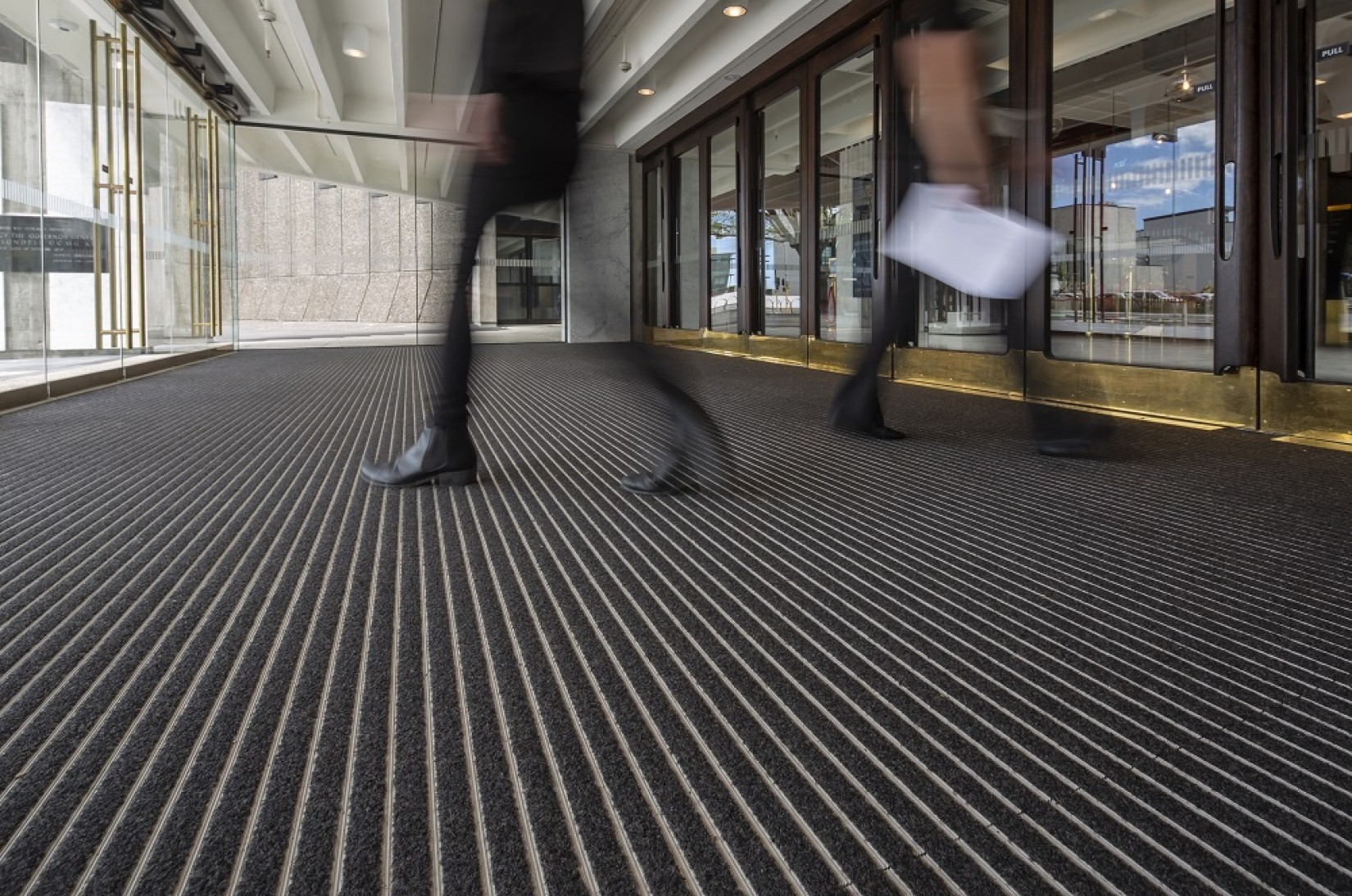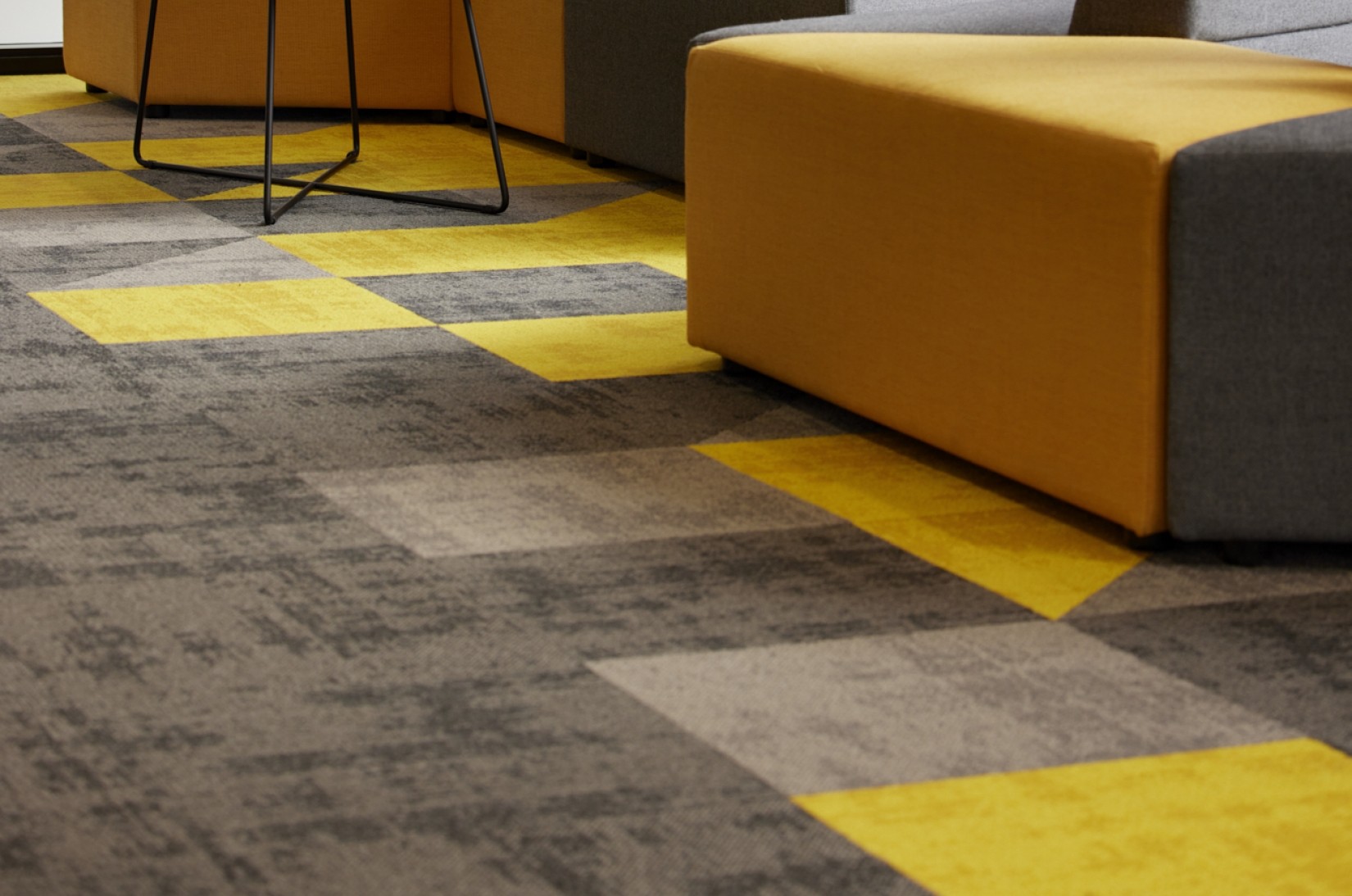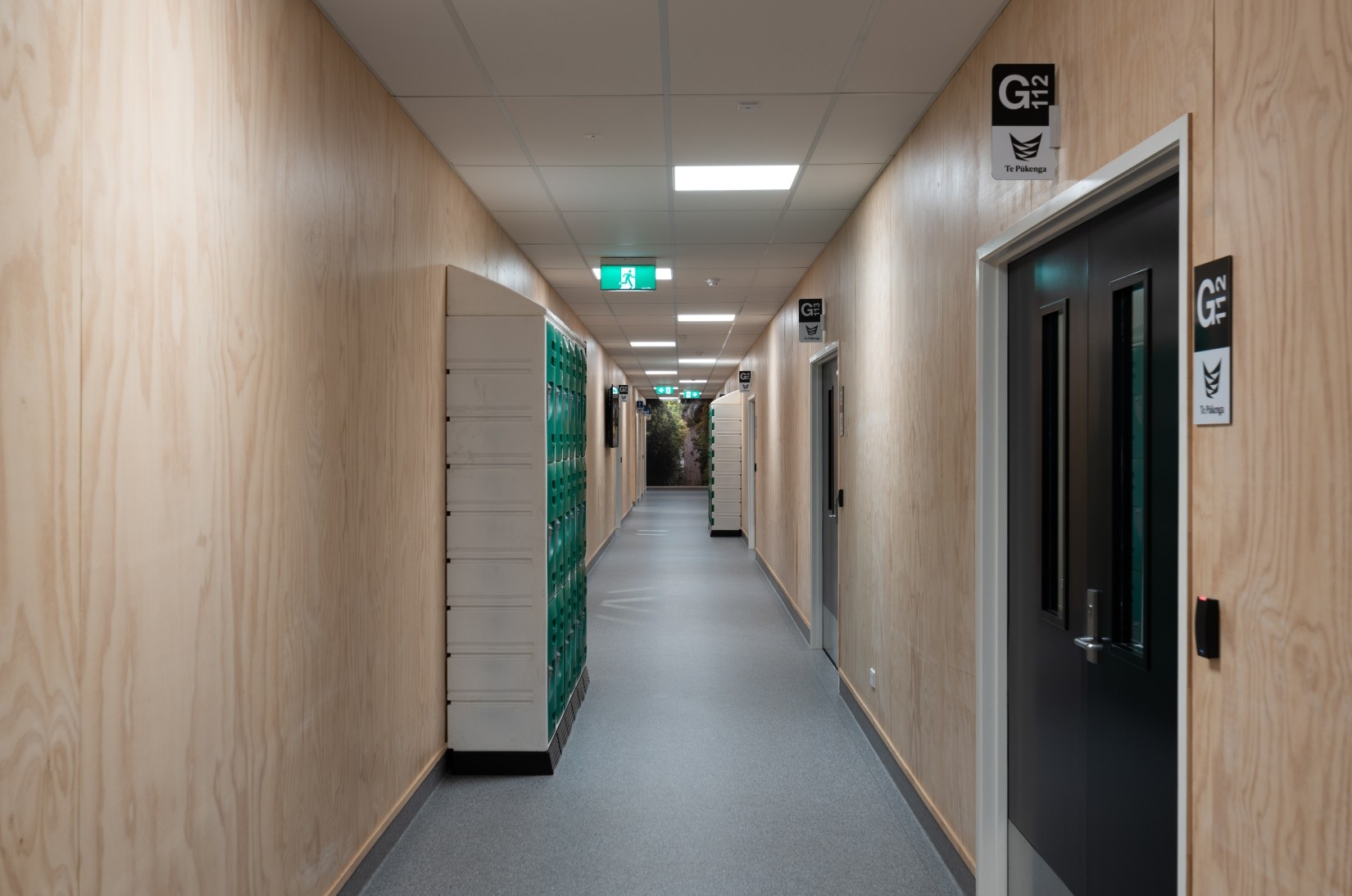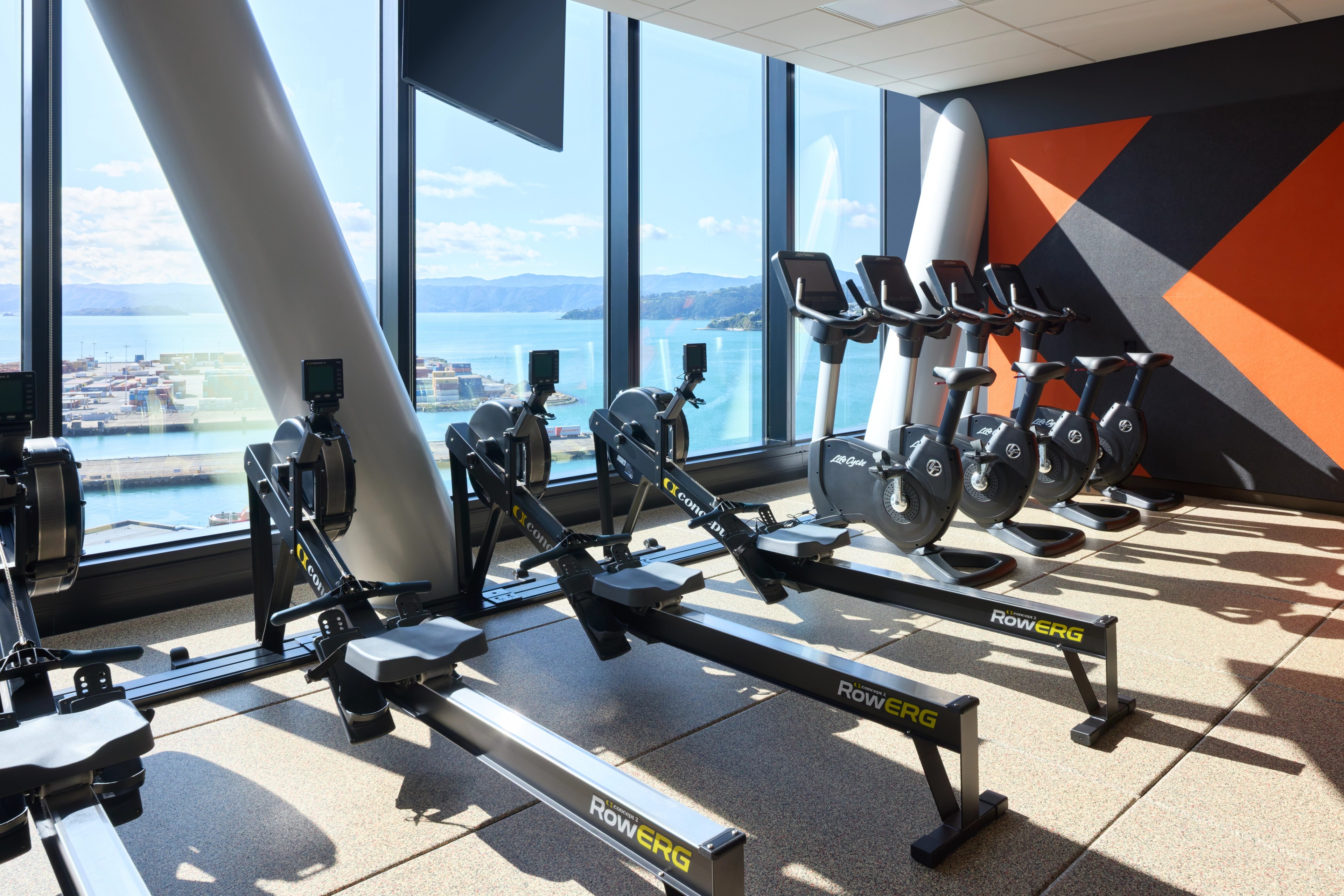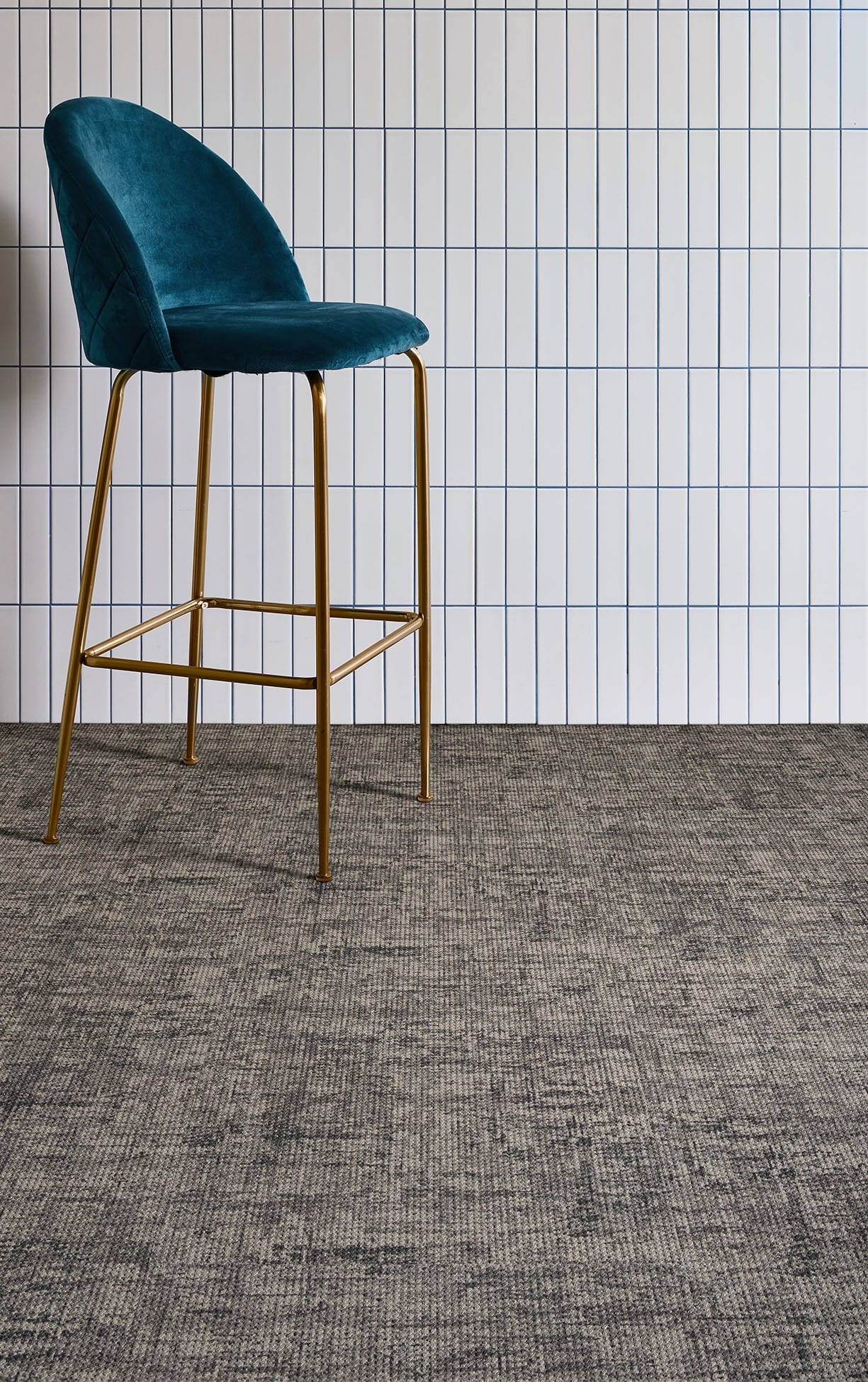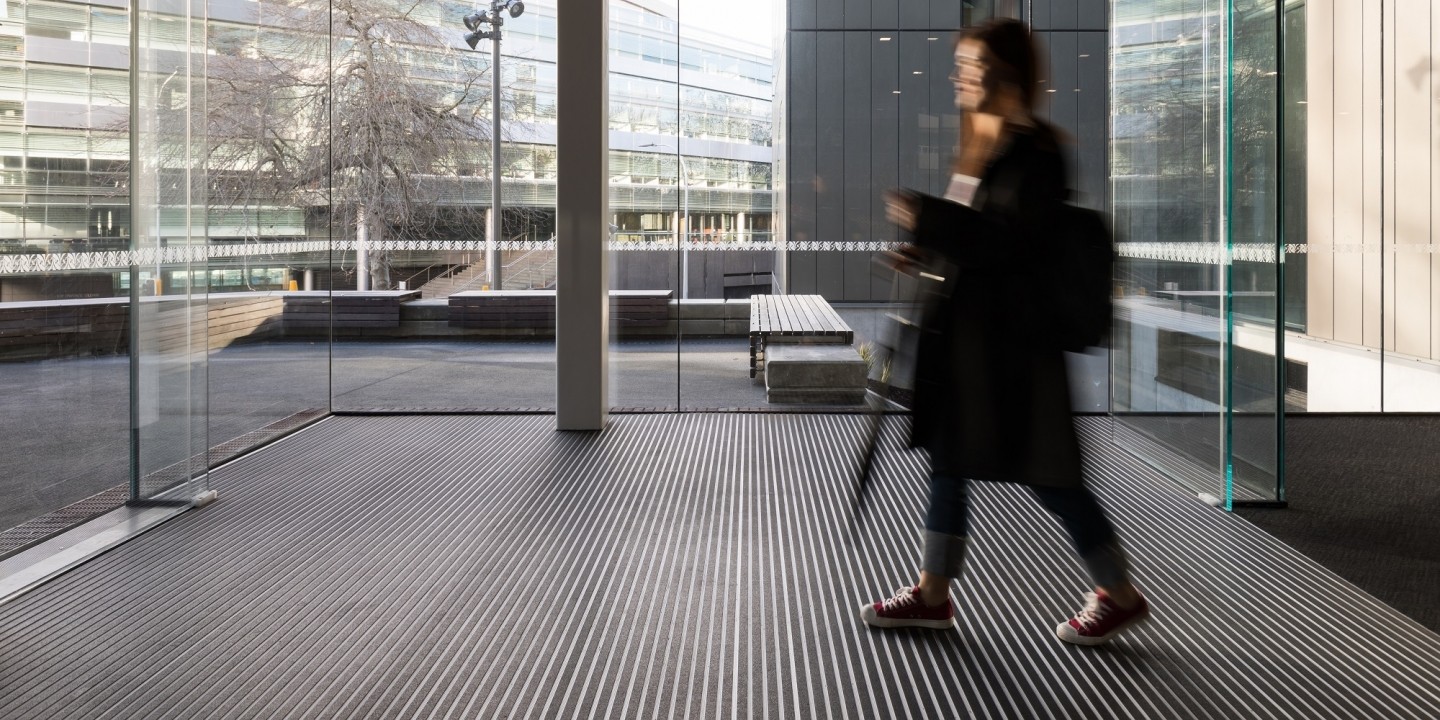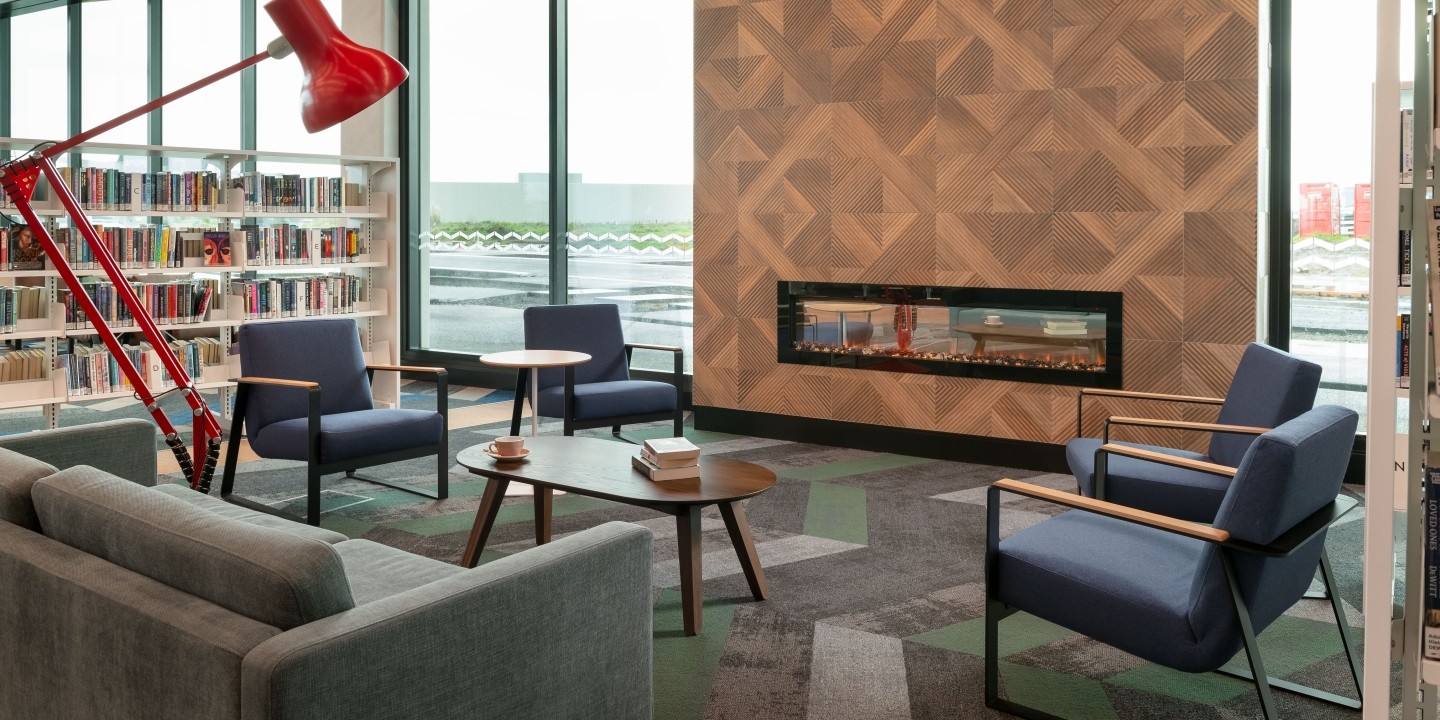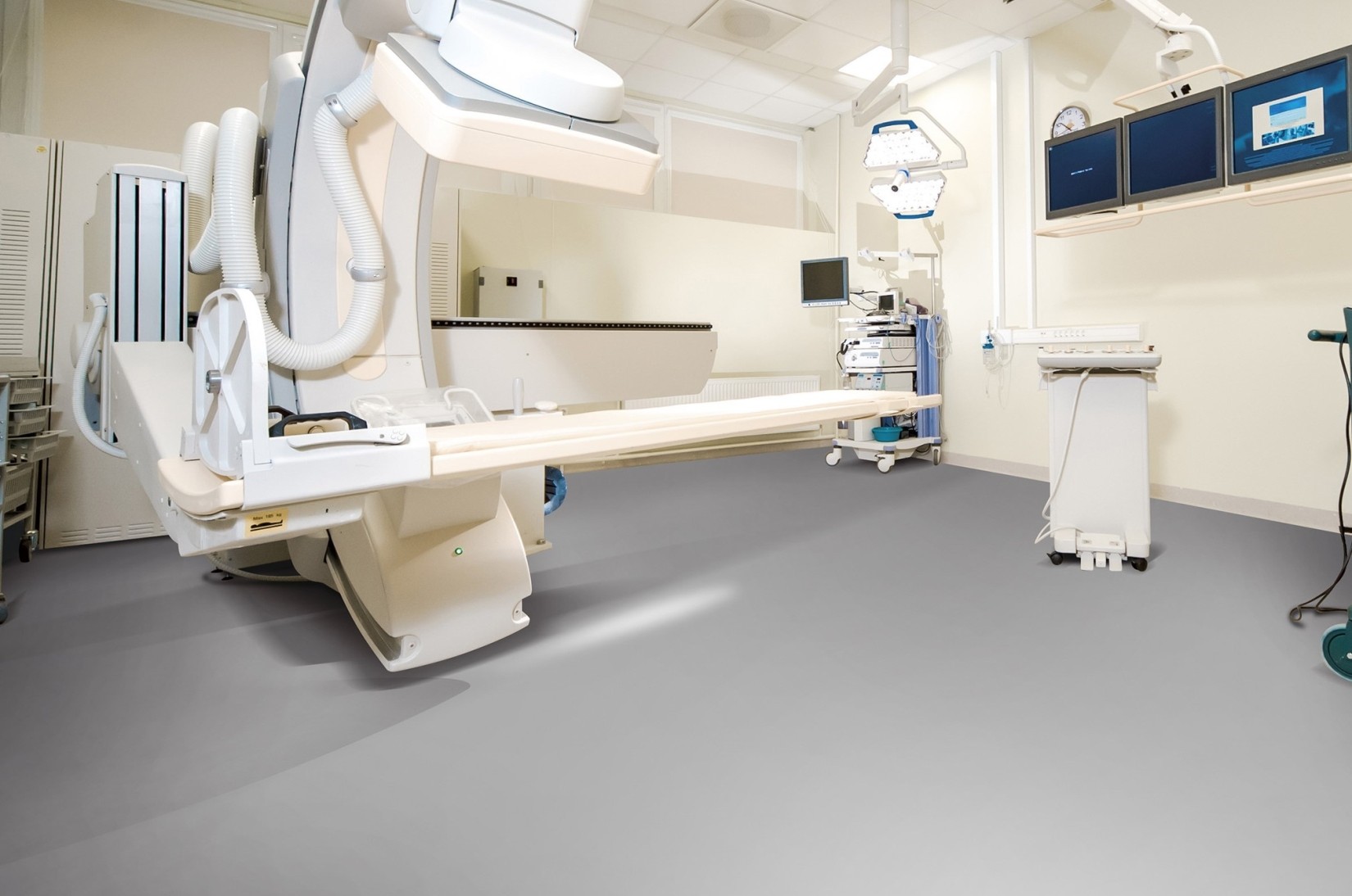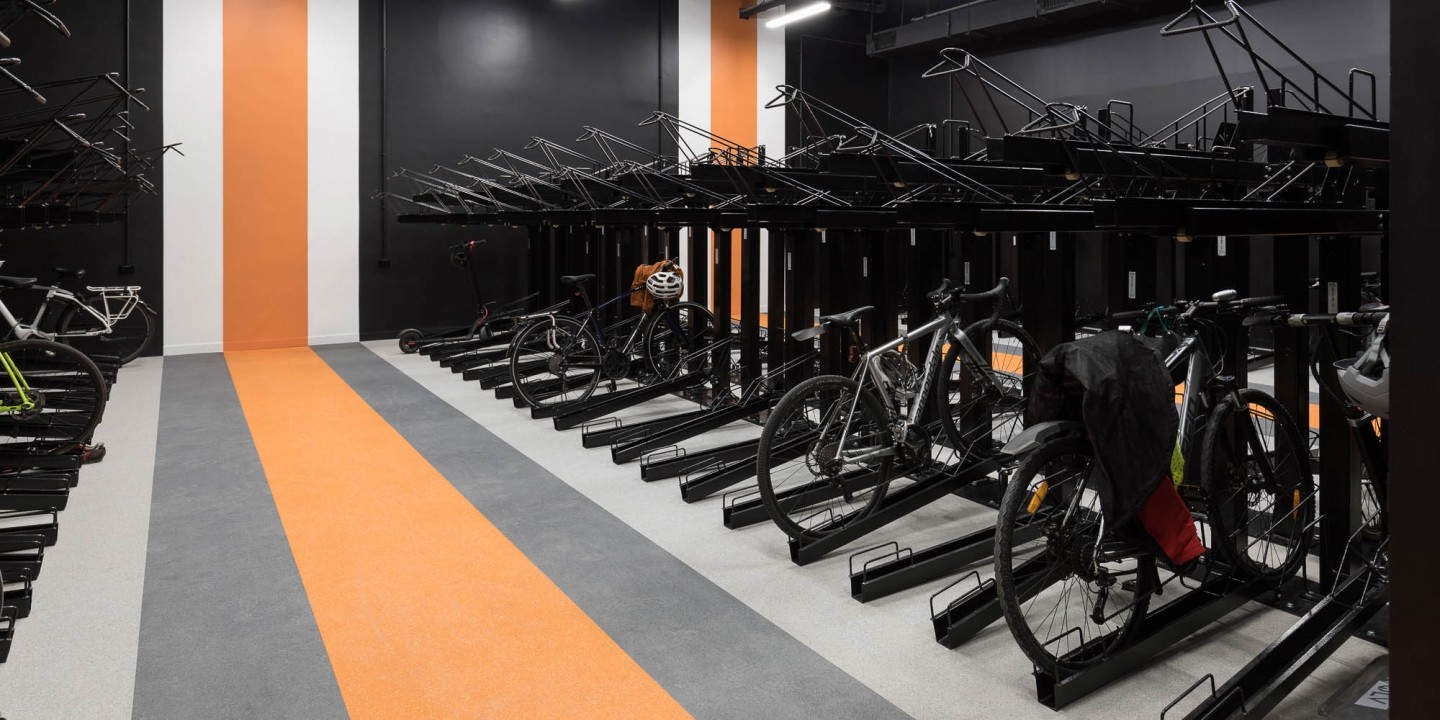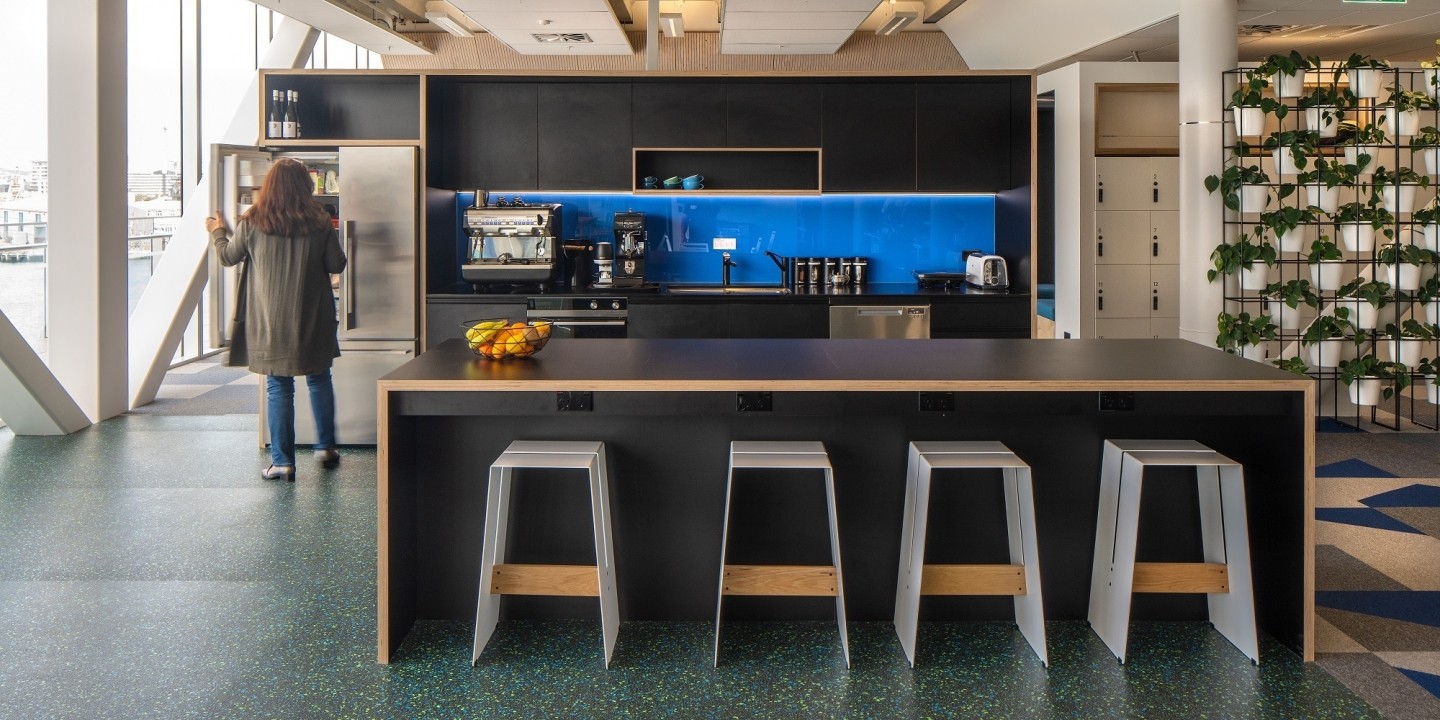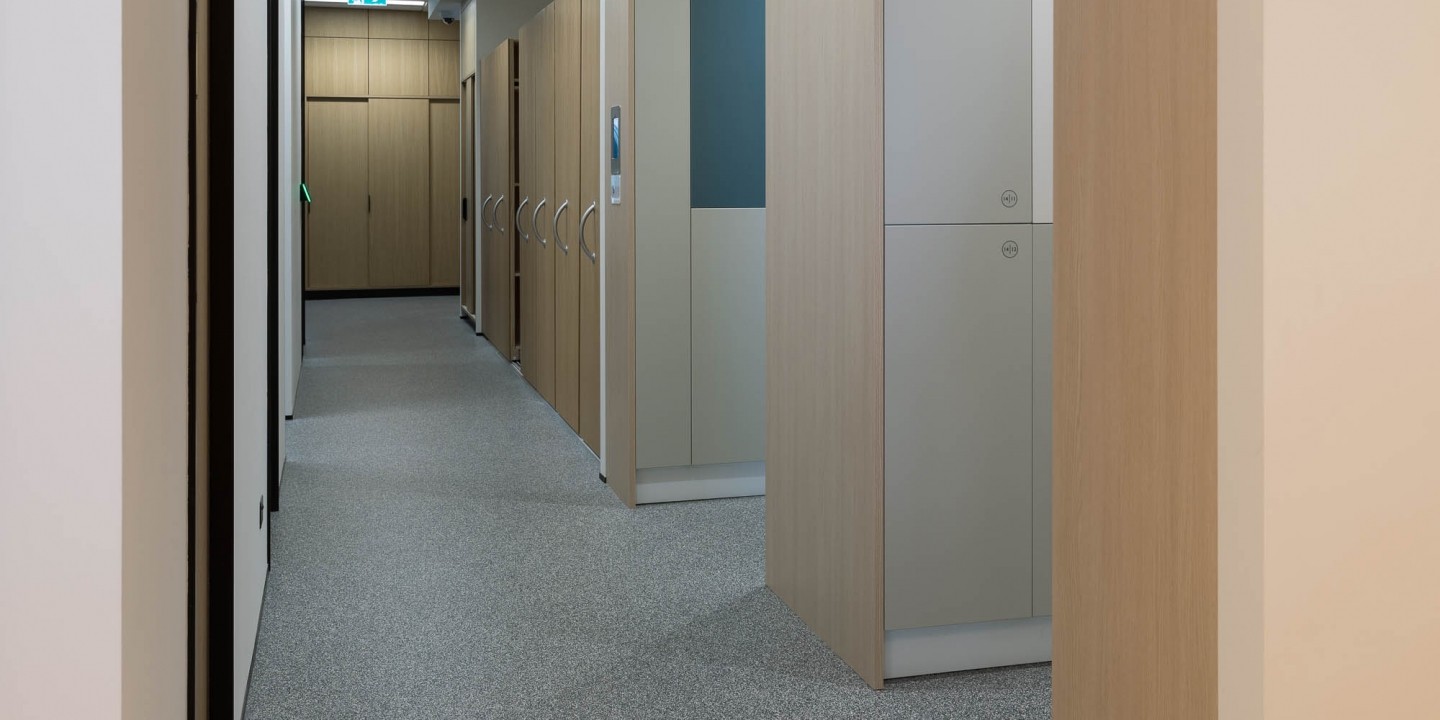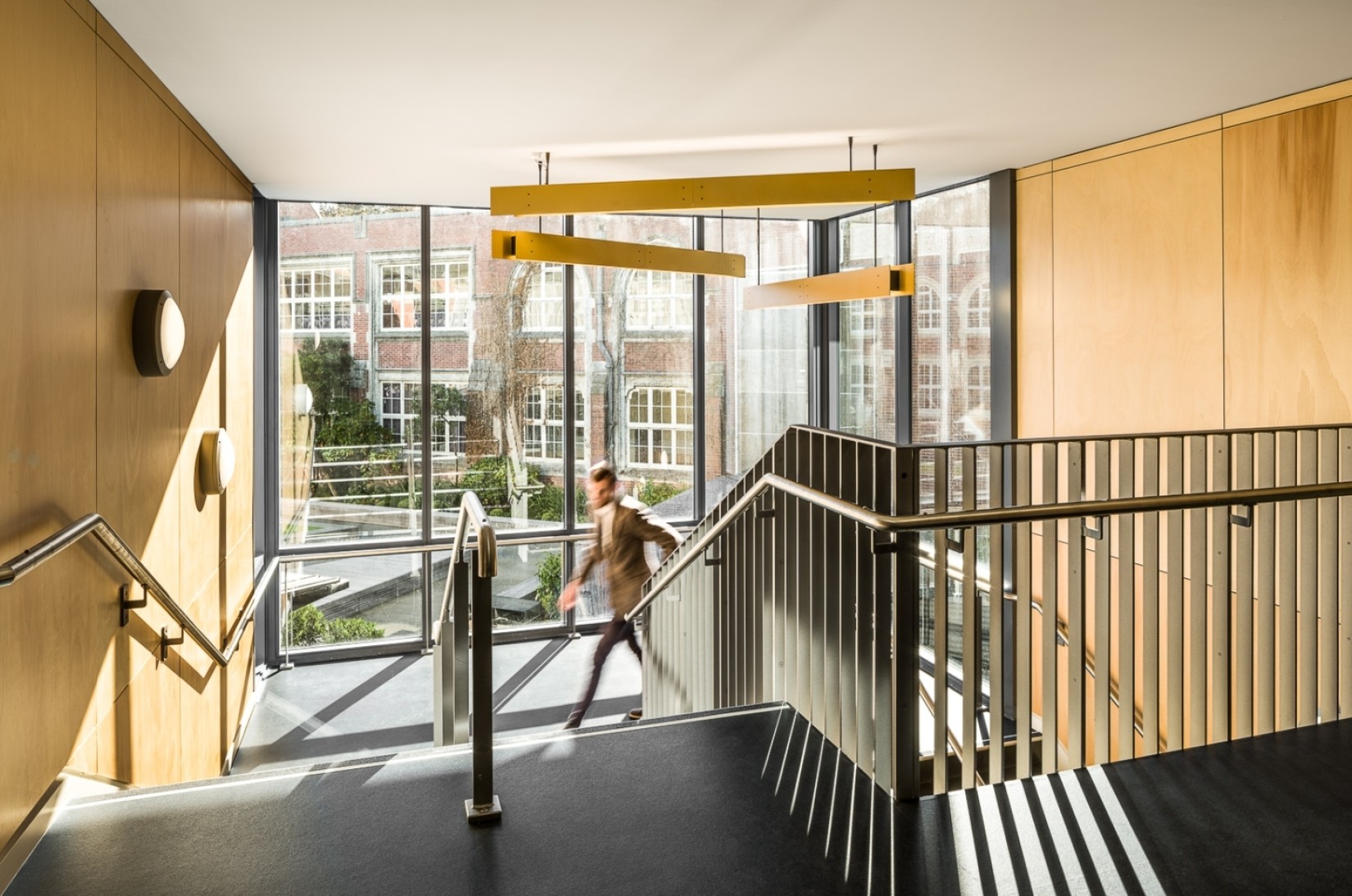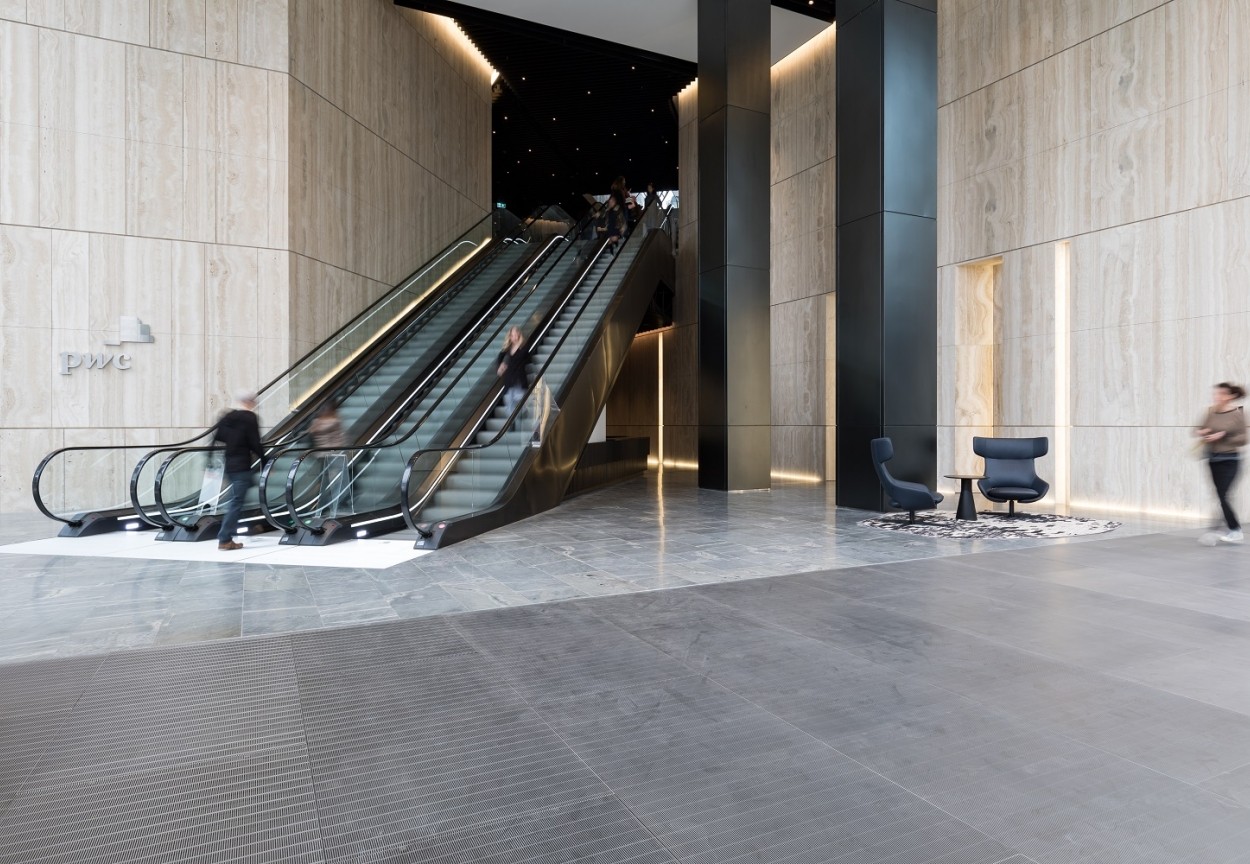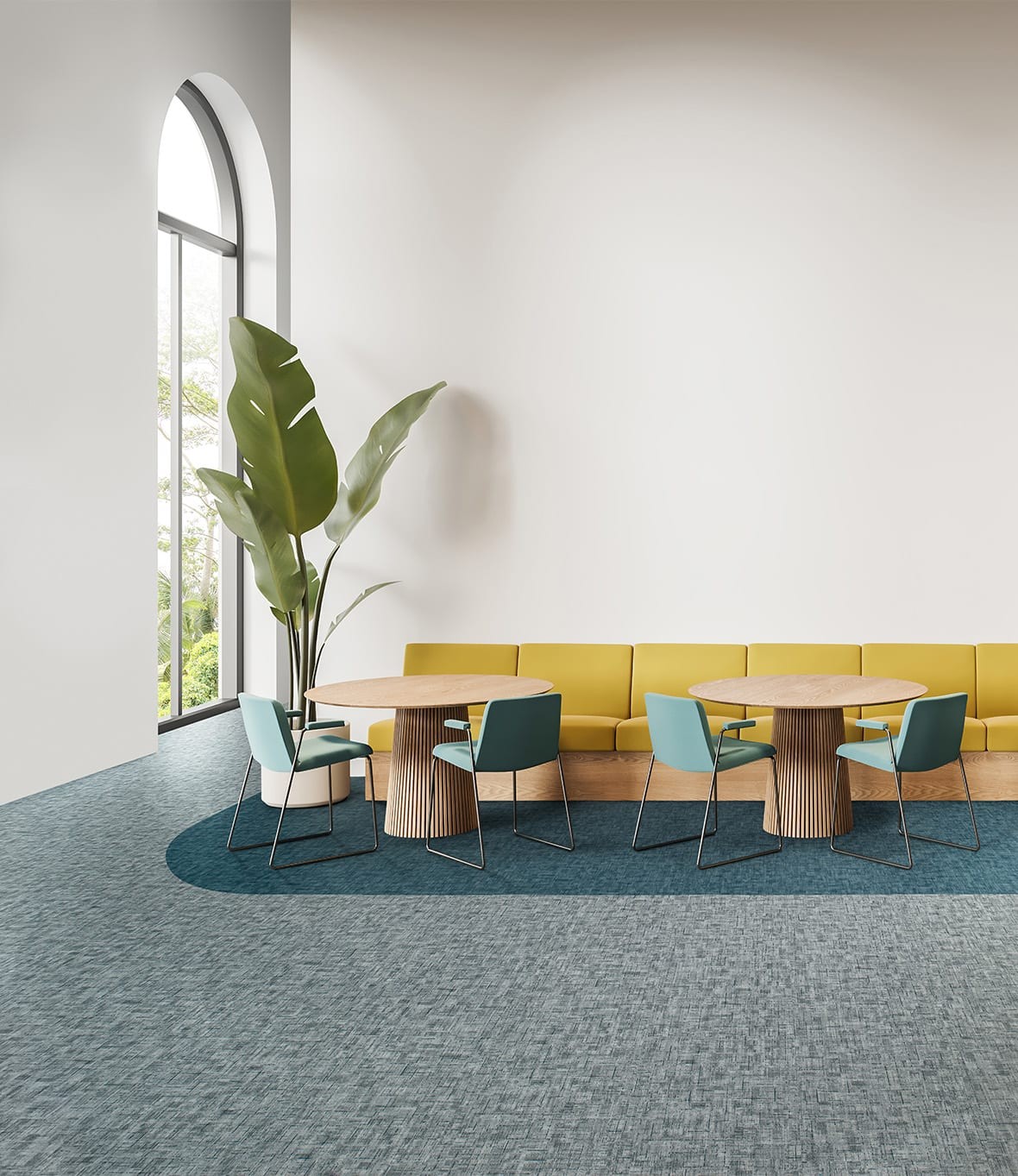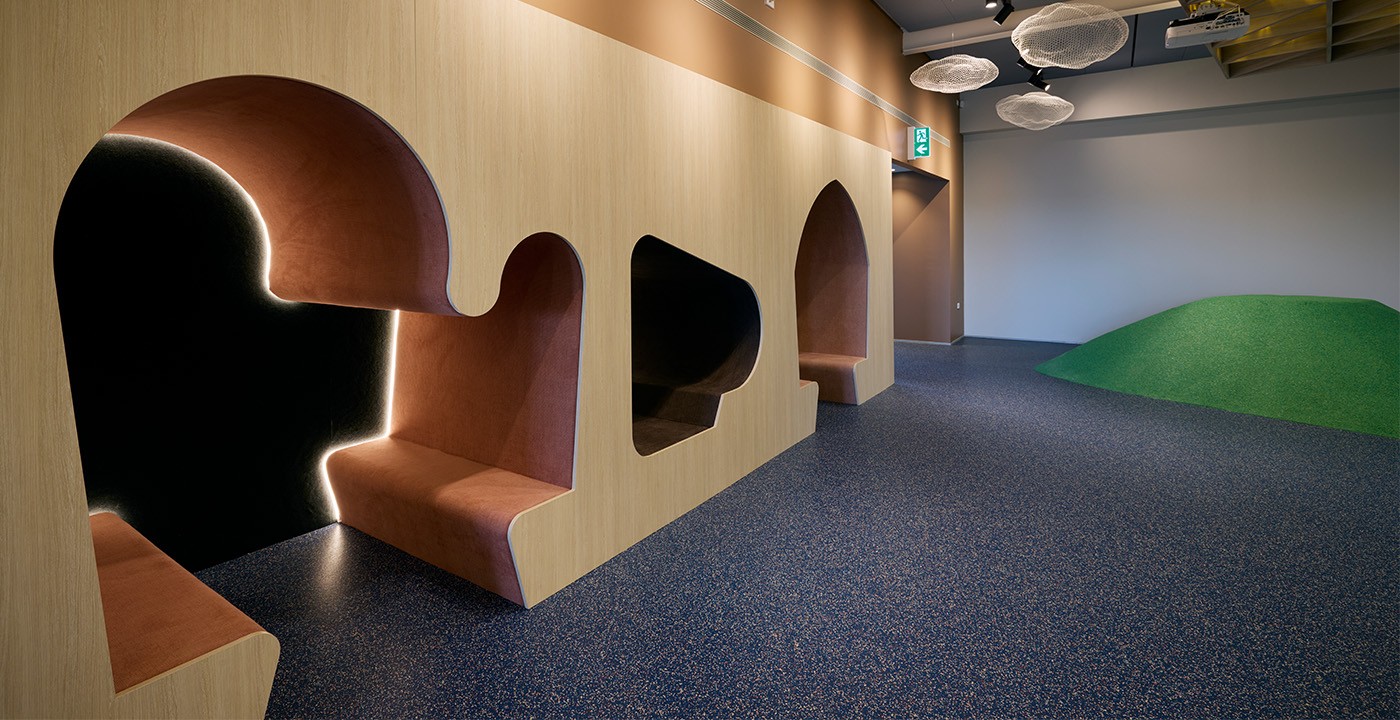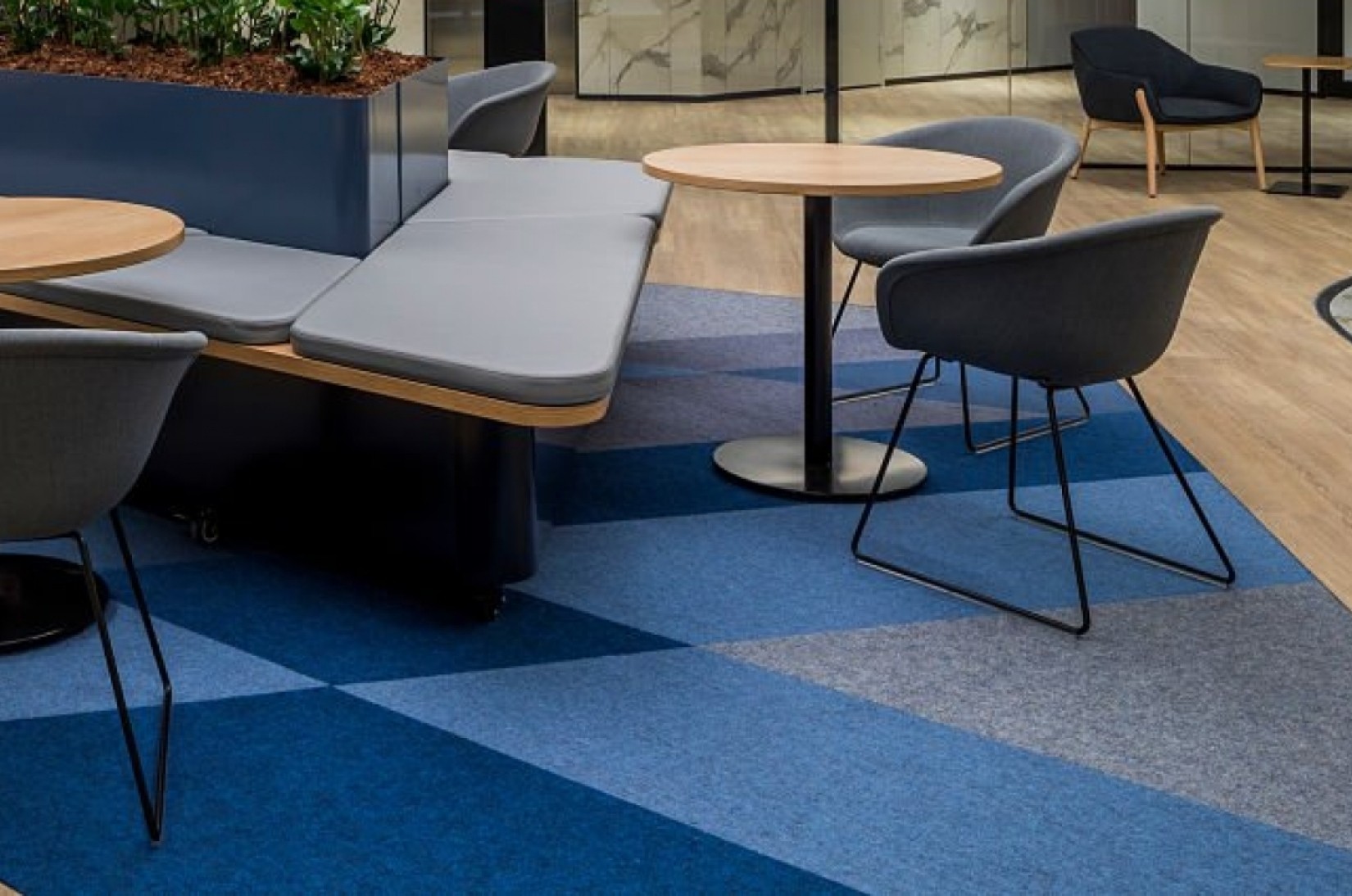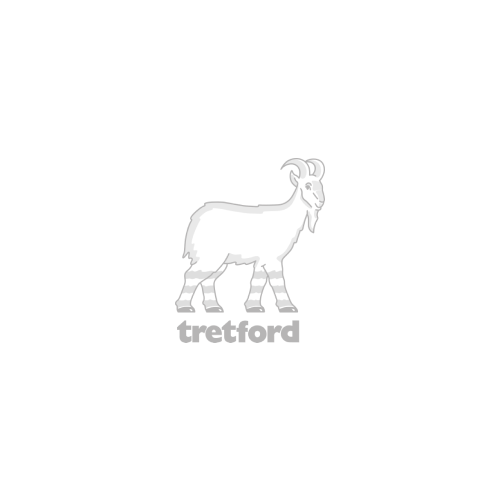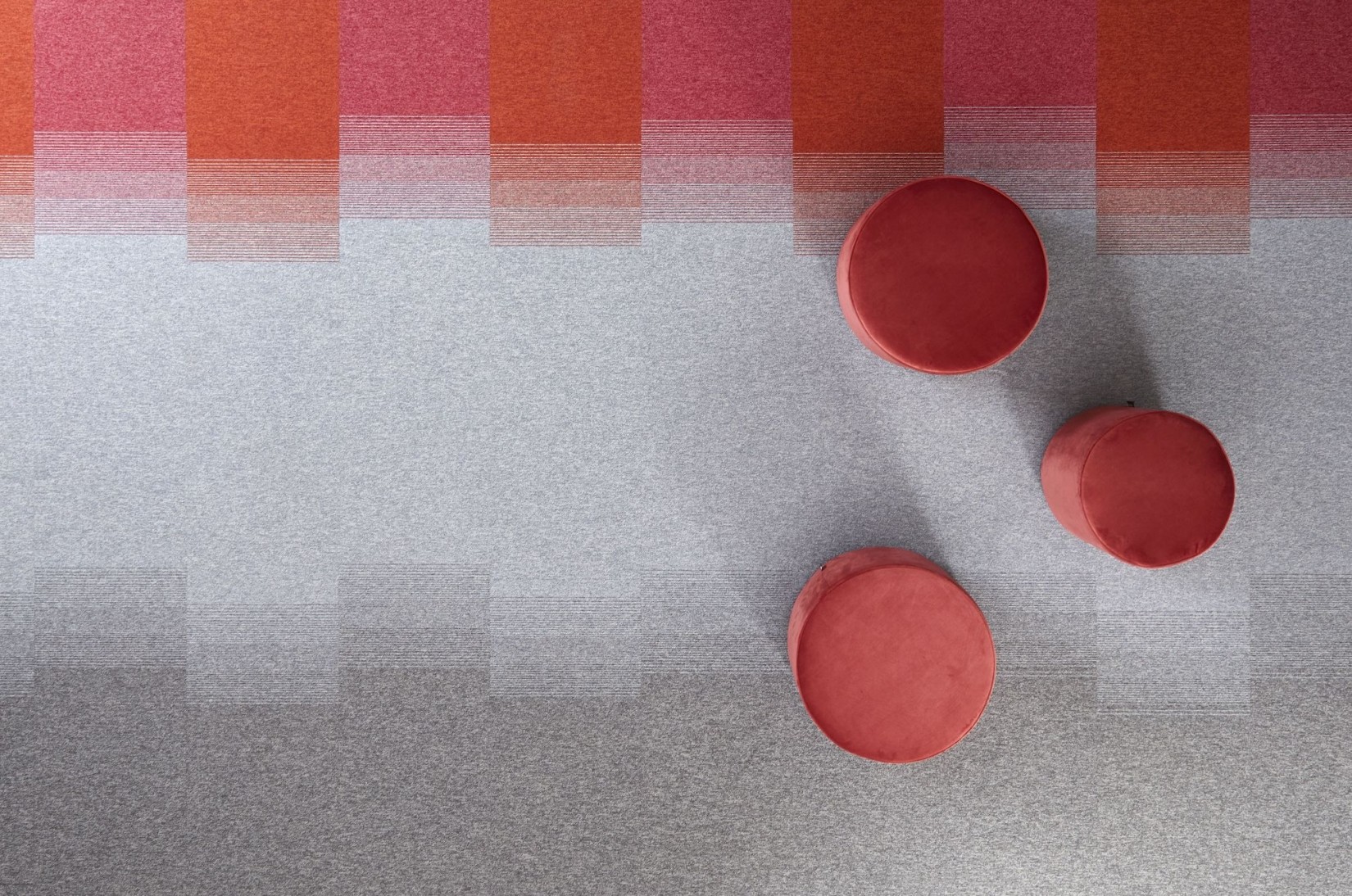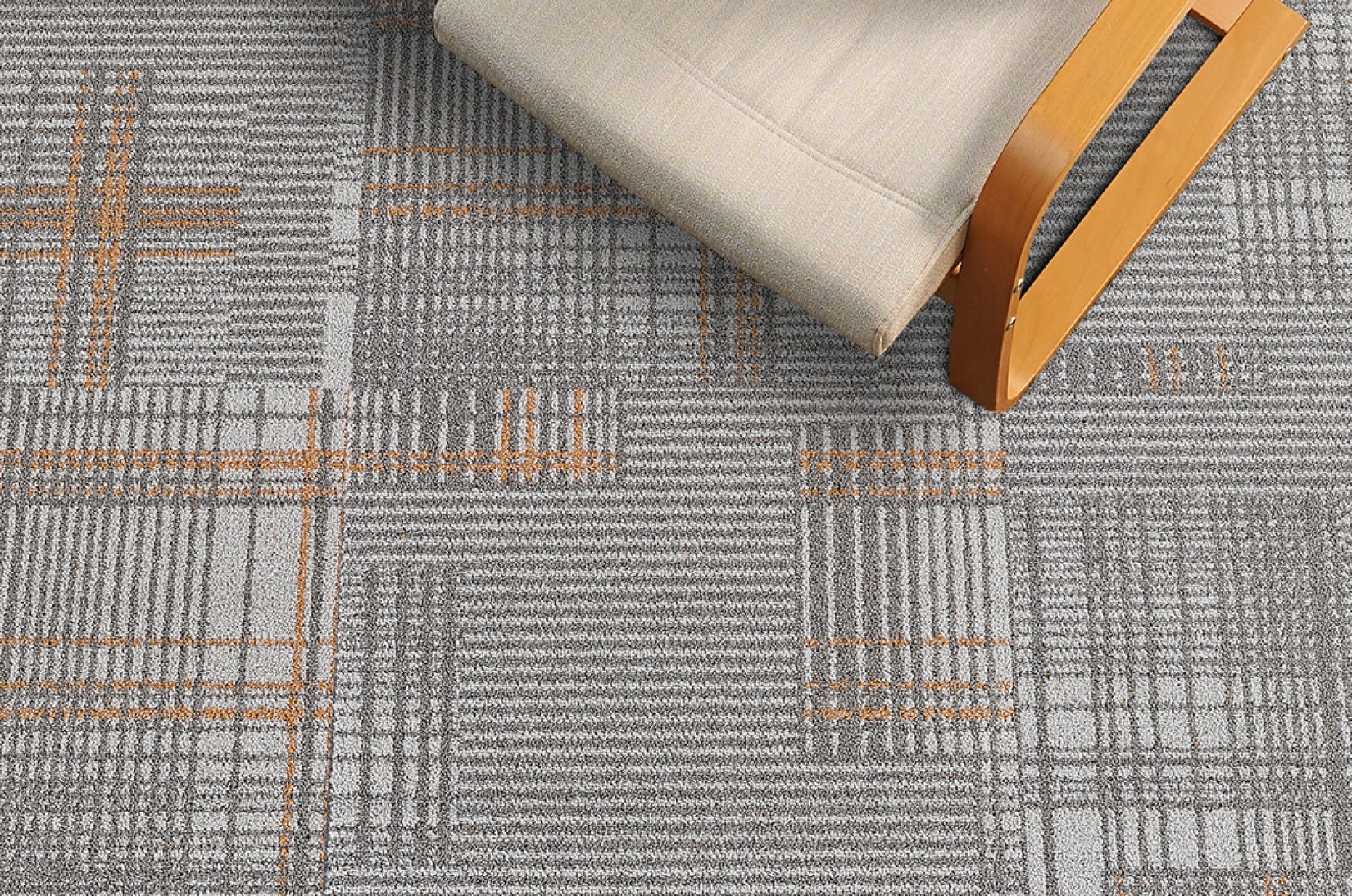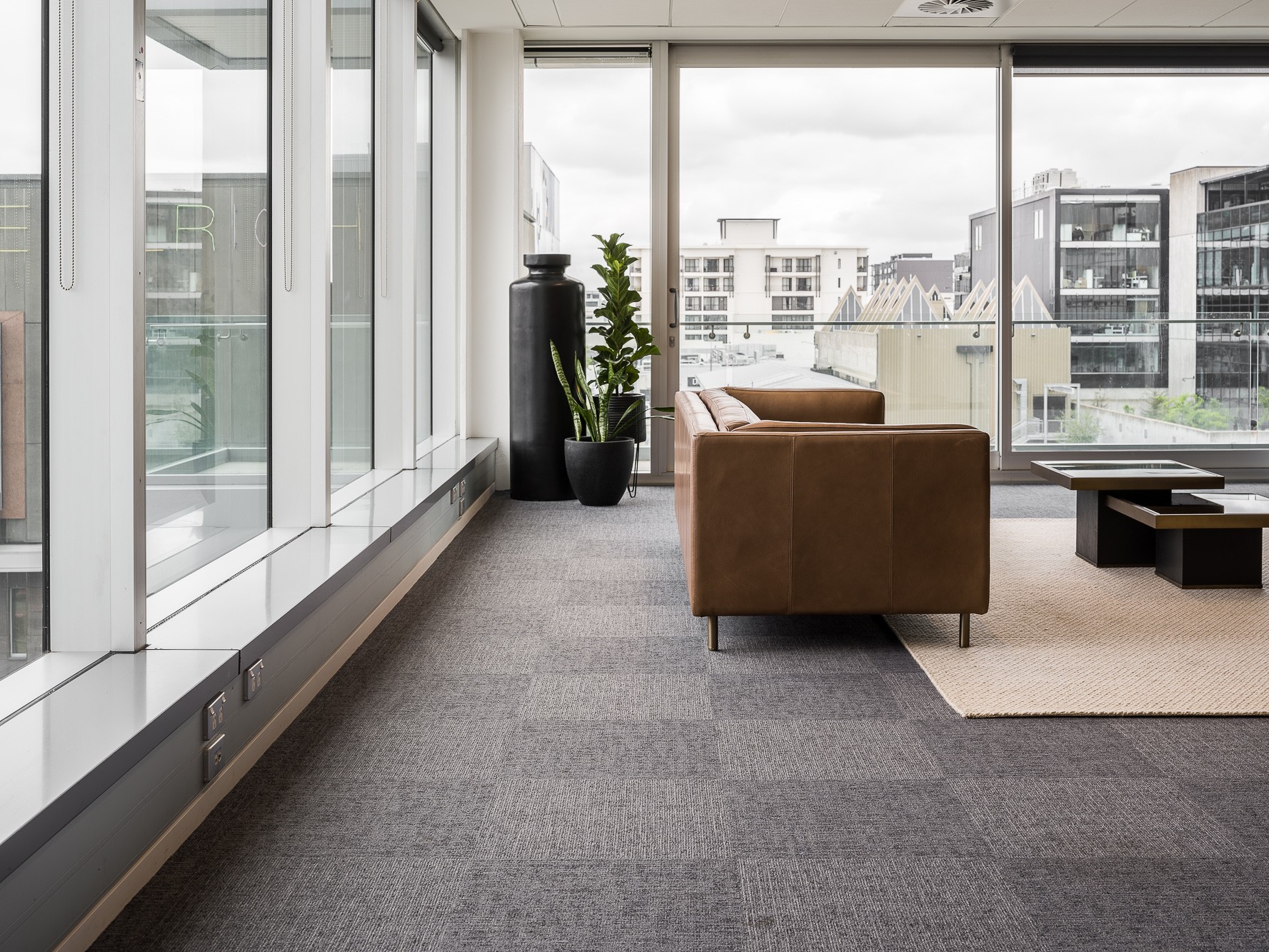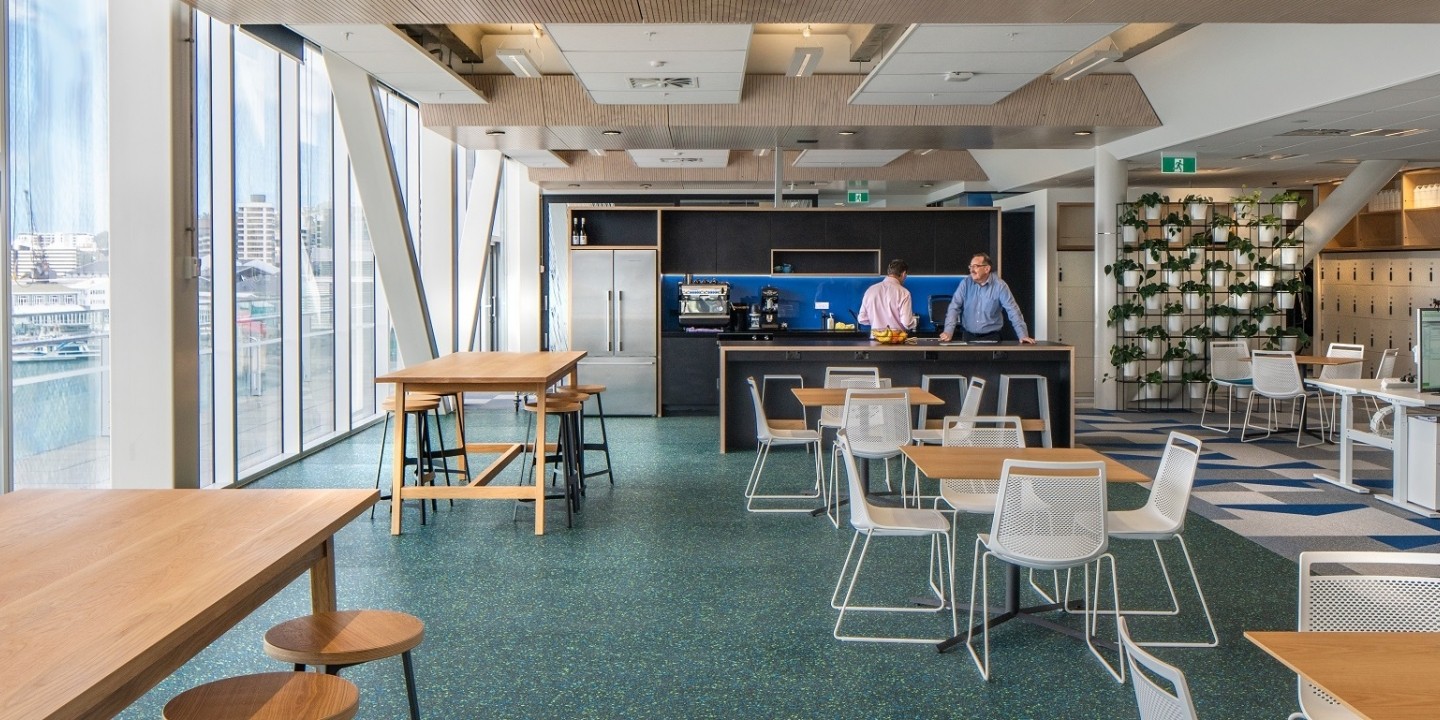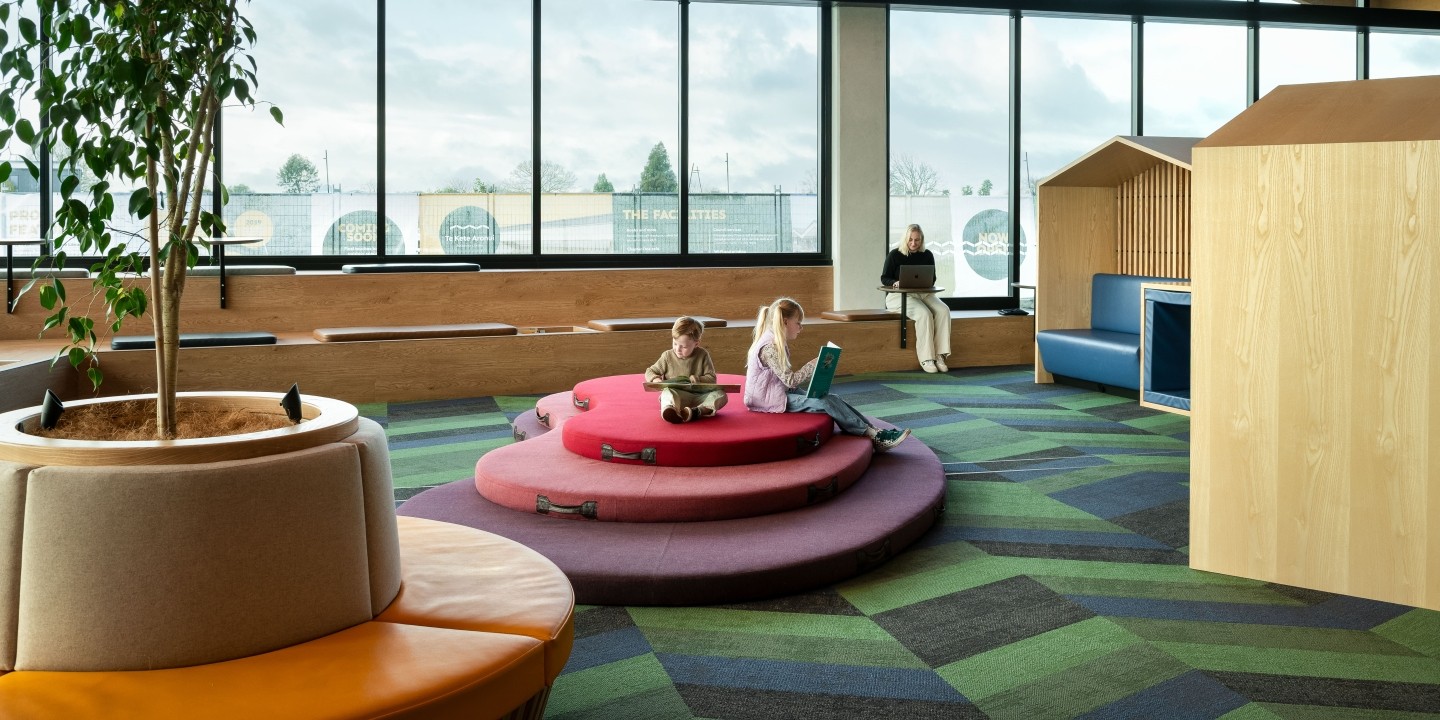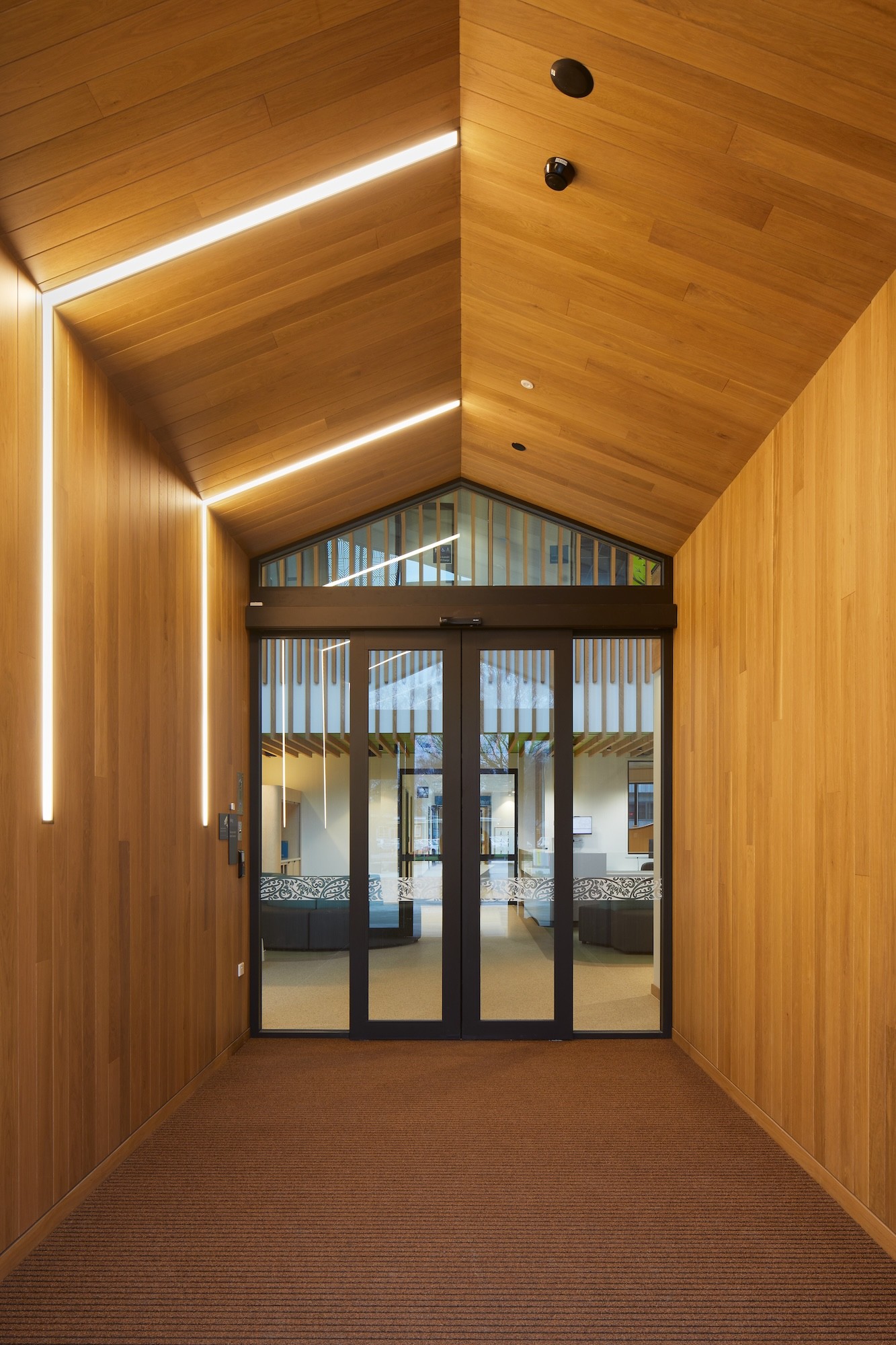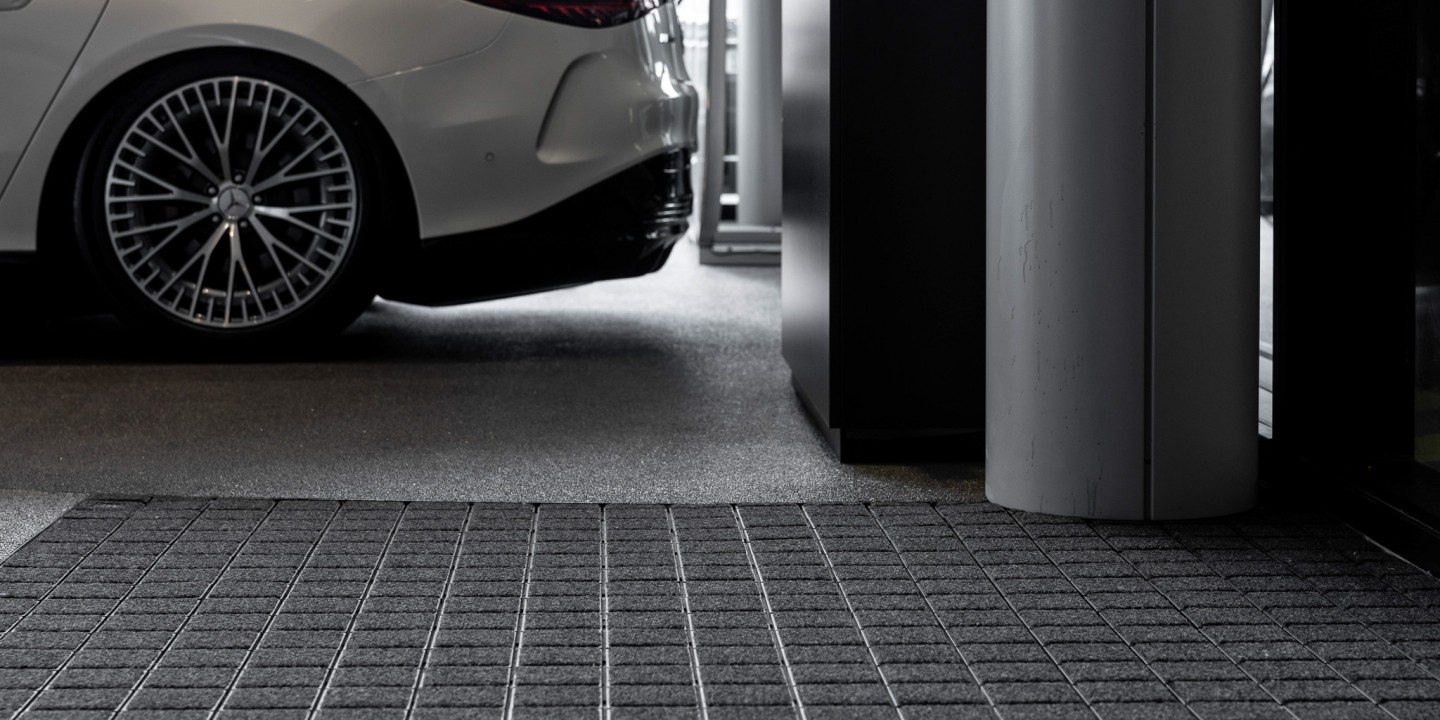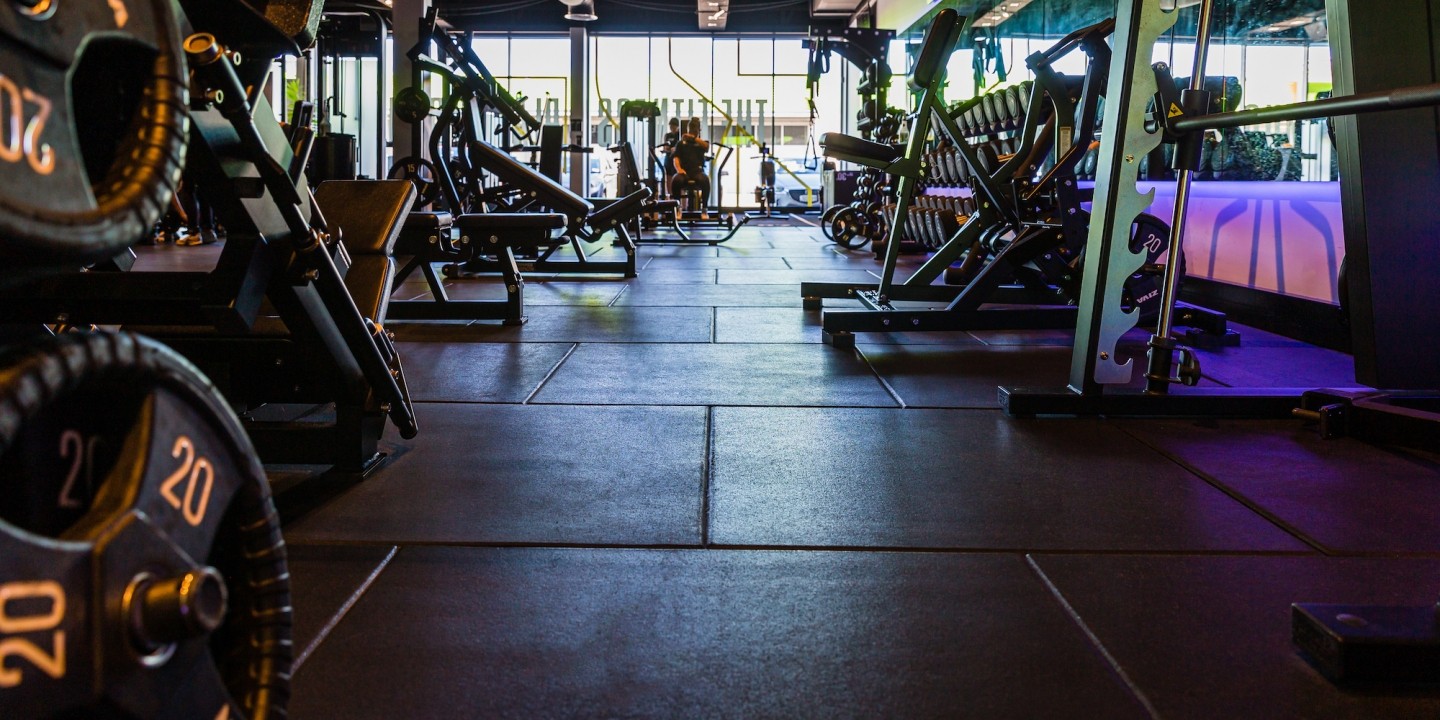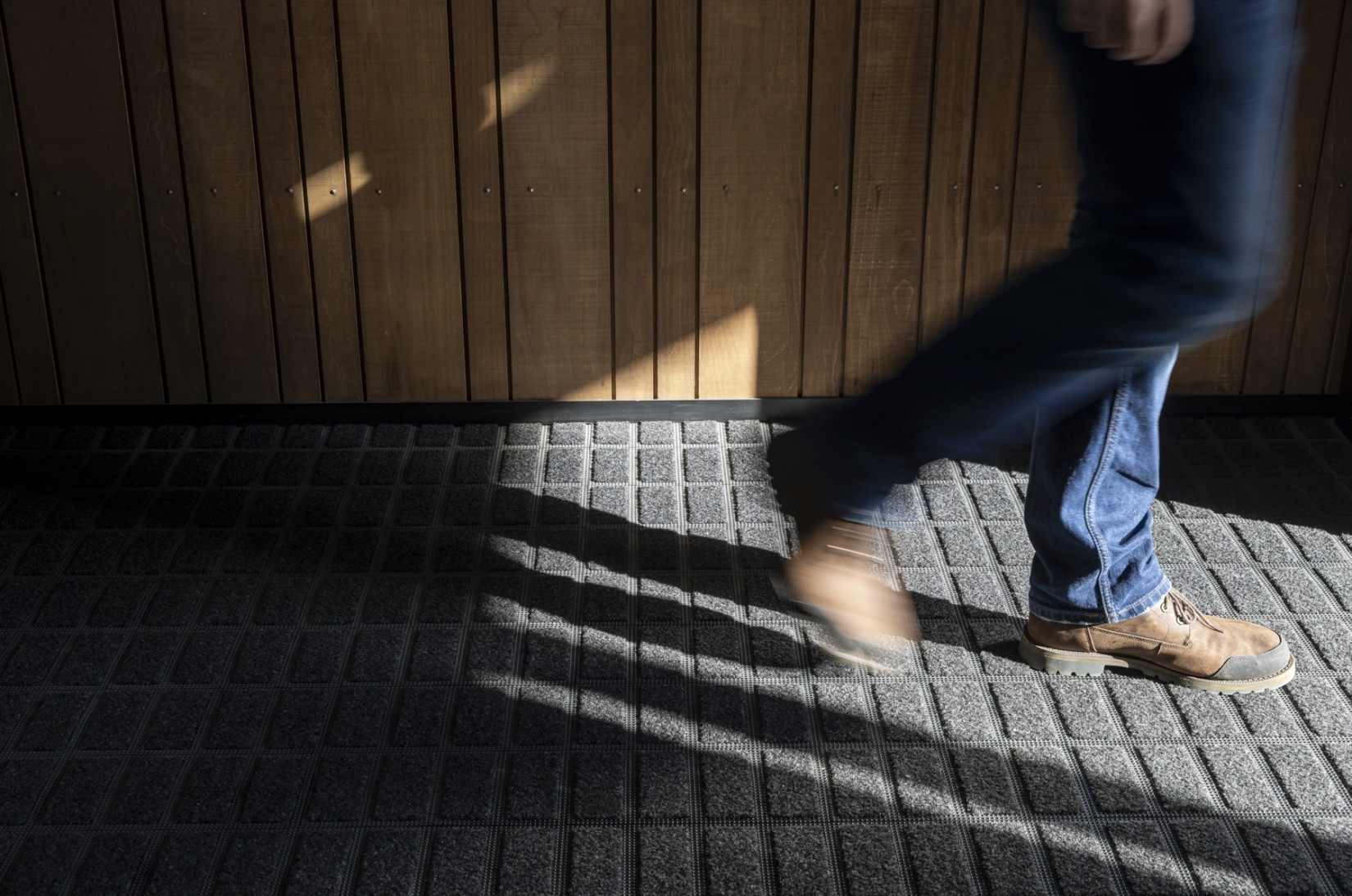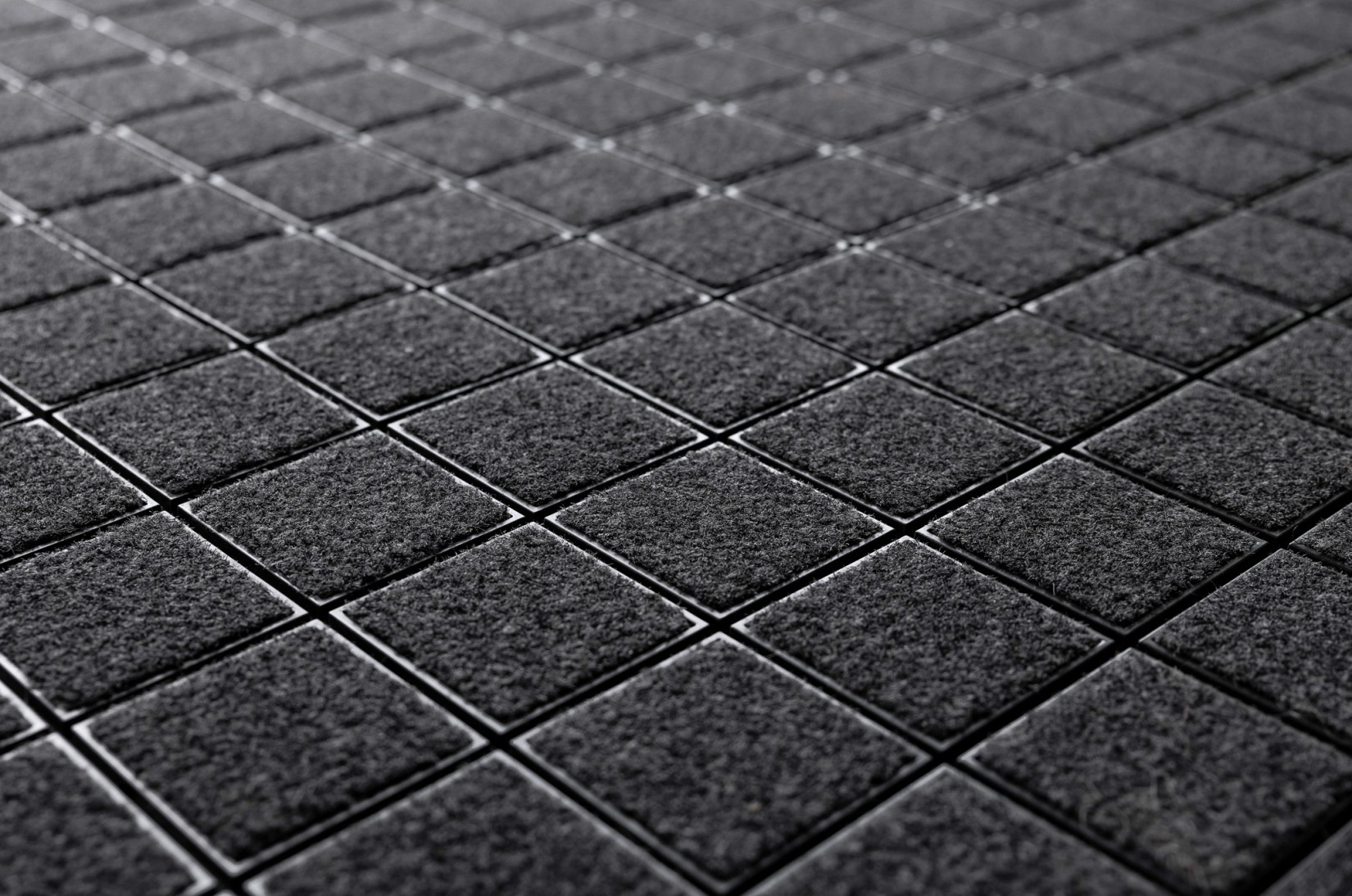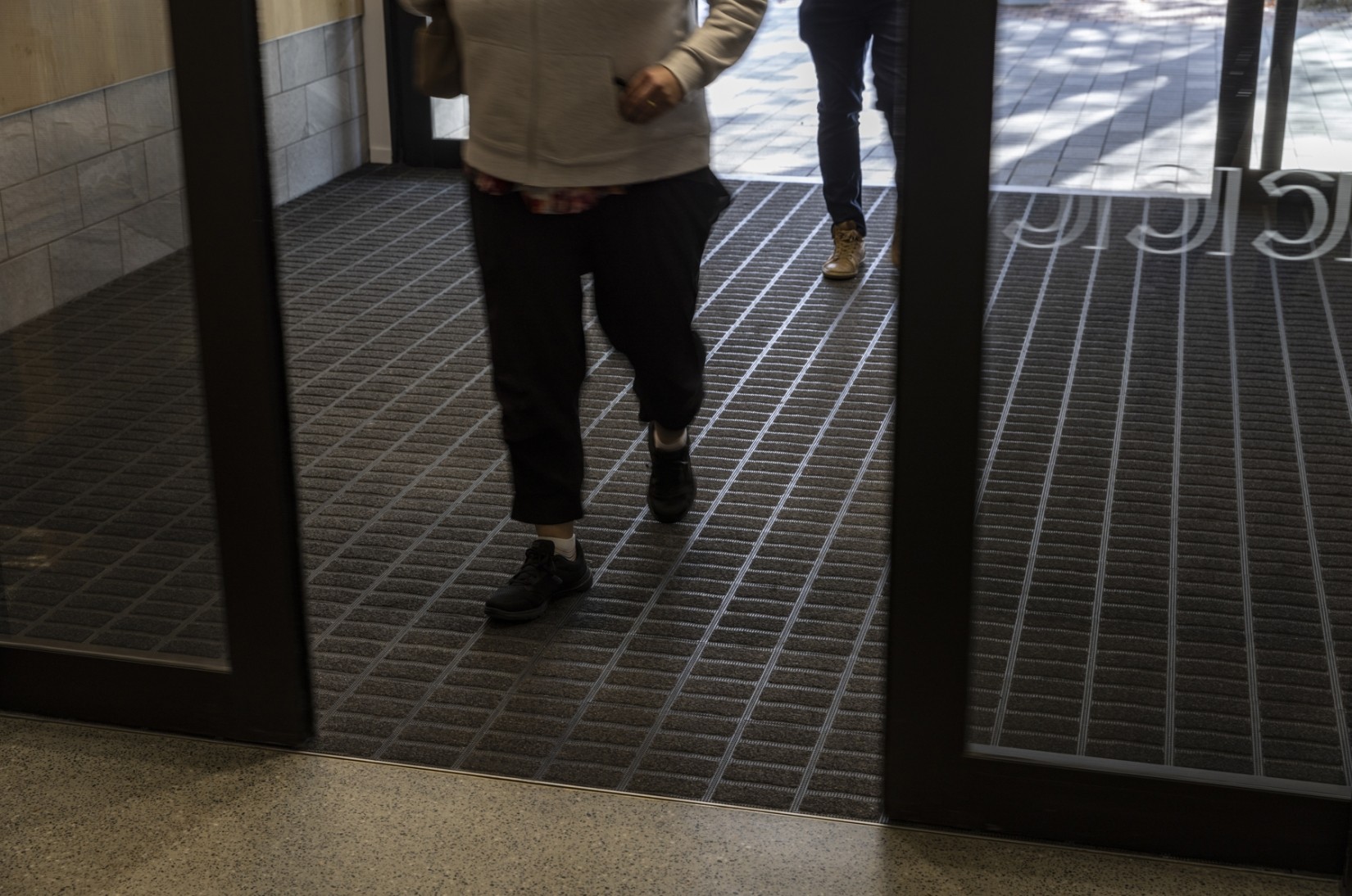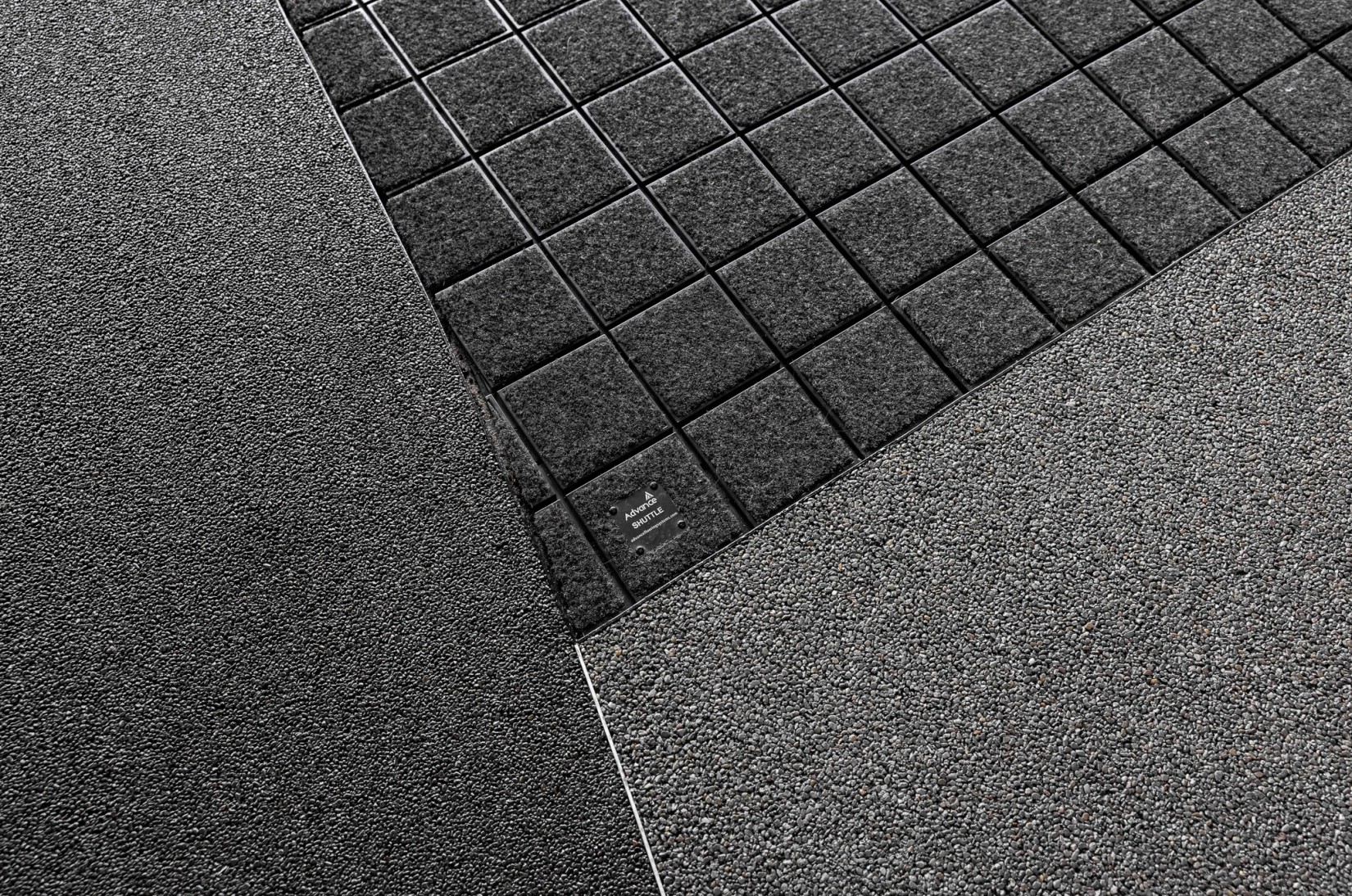If your building gets a high foot traffic count, a recessed entry mat system is not a nice-to-have – it’s a critical feature for your duty of care to visitors and your staff. Here’s why.
With the creeping specification of glue-down entry carpet in our large buildings (i.e., no matwell recess in the slab to trap dirt and water), we are making our public and corporate buildings less safe through greater ingress of dirt and moisture.
The New Zealand Building Code recommends an 1800mm deep recessed mat. However, this is not mandatory, only a recommendation, and so specifiers have started to remove matwells from some large building designs for a cheaper solution in a glue-down entry mat. Councils are turning a blind eye to safety implications, not to mention building maintenance issues.
We manufacture and sell both options, and can confidently say they are very different solutions, with very different outcomes.
ACC deals with 39,000 slip, trip and fall cases in the workplace annually
A recessed entryway matting system removes tracked-in dust and other fine particles better than an entry carpet can. The recess ‘stores’ dirt and moisture between regular cleaning schedules. The aluminium and / or fibre bristles do a much better job at scraping dirt off the soles of shoes. Because glue-down mats don’t have a tray, dirt and moisture inevitable get tracked inside. They are also far less effective at scraping dirt off a shoe.
For a busy building – such as a university, shopping centre, or office building – additional dirt and moisture tracked inside creates slip hazards, increasing the risk of physical injury. Each year, ACC reports around 39,000 slip, trip and fall cases in the workplace, which makes them the second most common workplace injury (behind lifting/straining).
This underlines the fact that building owners, architects and designers all have a duty of care to building occupants.
Cost-cutting a false economy
The less tracked-in dirt, the cleaner your interior floors will be. Maintenance costs are kept down, as damage to floor surfaces from grit are minimised. Studies show that every person who walks into a building brings an average 0.58g of dirt (soil, grit, dust, etc.). In busy environments, that can amount to several kilograms annually. Dirt and moisture not only damage flooring, they also add to the cleaning bill.
Surface-mounted entry matting may be appropriate for light foot traffic, but in busy areas it’s a false economy. Dirt, moisture, and impact from sustained usage can damage entry mats, leaving them curled, rippled, buckled, and worn and torn. Curled-up or flopped-over corners become dangerous trip hazards, which is why surface-mounted matting is unacceptable in shopping malls, hospitals and other such public spaces.
More dirt tracked inside also leads to more airborne pollutants, and these present a health hazard, especially given New Zealand’s high incidence of asthma.
Are you up to code?
As we have previously reported, the New Zealand Building Code sets out fire resistance regulations for entries and exits. It also requires that access routes into a building ‘have adequate slip-resistant walking surfaces under all conditions of normal use’ (clause D1.3.3). The NZBC recommends that entrance matting be recessed and fixed to the floor, and long enough to dry wheelchair wheels – this means extending at least 1800mm into the building. Research by 3M shows that a 1.5-metre run will remove around 30% of dirt from soles, rising to 95% on a 9-metre run.
In the US, where businesses pay over US$10 billion each year in direct costs for same-level slips, trips and falls, the recent introduction of a new national standard, ANSI/NFSI B101.6-2012, sets out guidelines for commercial entry matting specifically to reduce injuries. Here in New Zealand, the Health and Safety at Work Act 2015 brought new duties – and penalties – into law to protect workers and visitors alike at the workplace.
Properly designed recessed entry mat systems, designed in New Zealand
Our architectural series of entrance matting systems feature absorbent polyamide fibre inserts in an aluminium frame, which not only look good but also trap dirt and wick moisture effectively from incoming foot traffic. To find out more about recessed entry mat systems, contact Advance Flooring on 0508 238 262 (0508 ADVANCE), or request a call back.
